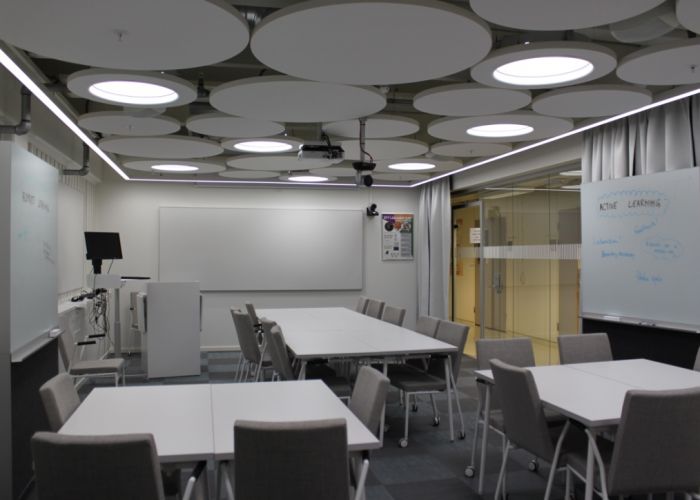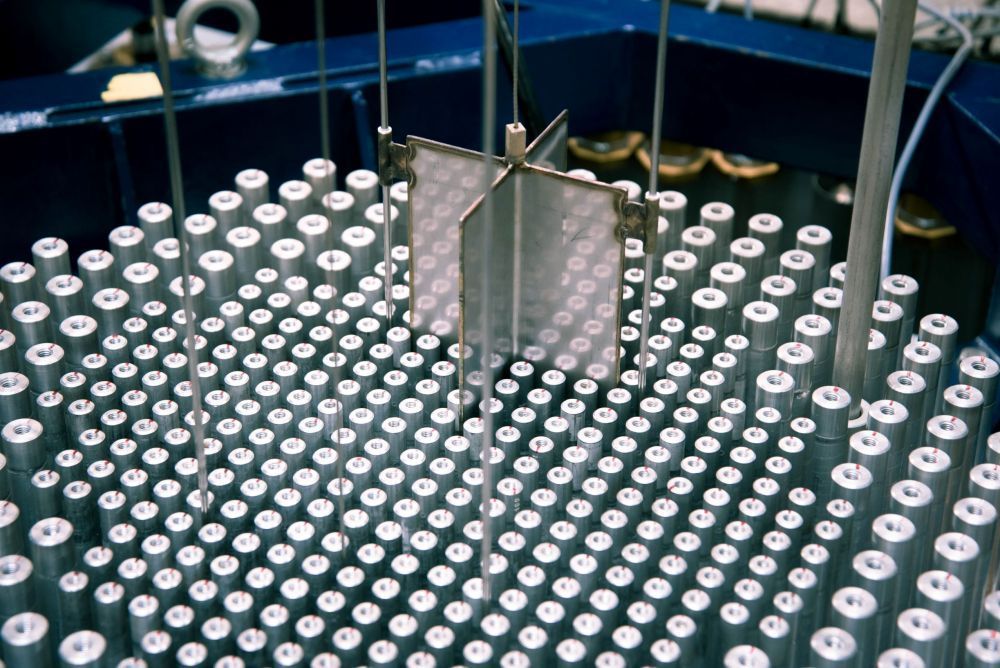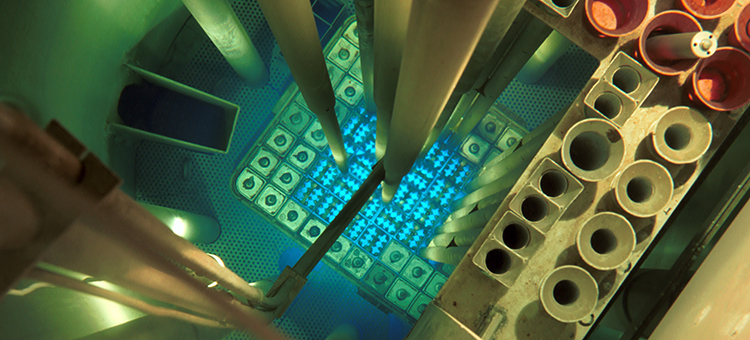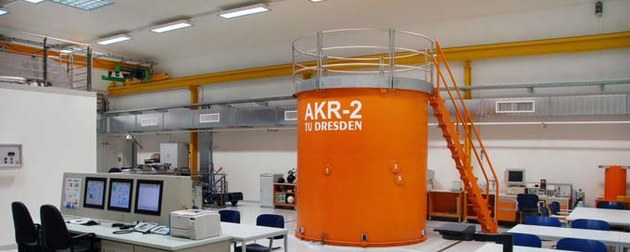The GRE@T-PIONEeR courses
The goal of GRE@T-PIONEeR is to provide resources and courses that cover a wide range of aspects of nuclear reactor modelling and physics. Students that take these courses will be the next generation of nuclear scientists and engineers, providing much-needed skills to the nuclear energy sector. The courses are also available to people already working in the sector that want to increase their knowledge and sharpen their skills.
Each course will use multiple tools to engage with students, including:
- introductory webcasts;
- handbooks (presenting the covered topic in detail);
- video lectures (summarising the key concepts presented in the handbooks);
- online quizzes (to better understand the presented concepts);
- and hands-on training exercises in form of programming, simulations, and/or laboratory exercises in nuclear facilities/research reactors.
Research reactors at 1. the CROCUS reactor from EPFL (image by Maxime Filliau) 2. The Training Reactor of the BME & 3. AKR-2 reactor from TUD

Hybrid classroom at Chalmers University of Technology (image by Anna Wallin/Chalmers University of Technology)
Teaching will be online, in-person and a hybrid format. Specialised facilities allow for both online and physical interactions, such as the hybrid learning room at Chalmers University (above). For online learning, a Learning Management System (LMS) will be used by the consortium for course delivery and management. This system will be accessible from the website when the LMS has been launched.
The GRE@T-PIONEeR courses
The goal of GRE@T-PIONEeR is to provide resources and courses that cover a wide range of aspects of nuclear reactor modelling and physics. Students that take these courses will be the next generation of nuclear scientists and engineers, providing much-needed skills to the nuclear energy sector. The courses are also available to people already working in the sector that want to increase their knowledge and sharpen their skills.
Each course will use multiple tools to engage with students, including:
- introductory webcasts;
- handbooks (presenting the covered topic in detail);
- video lectures (summarising the key concepts presented in the handbooks);
- online quizzes (to better understand the presented concepts);
- and hands-on training exercises in form of programming, simulations, and/or laboratory exercises in nuclear facilities/research reactors.
Research reactors at 1. the CROCUS reactor from EPFL (image by Maxime Filliau) 2. The Training Reactor of the BME & 3. AKR-2 reactor from TUD

Hybrid classroom at Chalmers University of Technology (image by Anna Wallin/Chalmers University of Technology)
Teaching will be online, in-person and a hybrid format. Specialised facilities allow for both online and physical interactions, such as the hybrid learning room at Chalmers University (above). For online learning, a Learning Management System (LMS) will be used by the consortium for course delivery and management. This system will be accessible from the website when the LMS has been launched.
The courses are currently planned for end of 2022 and will follow 6 themes:
The 6 course themes
Nuclear Data For Energy And Nonenergy Applications
- The generation and evaluation of nuclear data libraries.
- The processing of nuclear data libraries for use in energy and non-energy applications.
- The assessment of nuclear data uncertainties.
Neutron Transport At The Fuel Cell And Assembly Levels
- The principles of probabilistic methods in steady-state conditions for fuel cell and assembly calculations.
- The principles of deterministic methods in steady-state conditions, their approximations, and their range of validity for fuel cell and assembly calculations.
- The use of those methods for macroscopic cross-section generation.
Core Modelling For Core Design
- The principles of probabilistic methods in steady-state conditions for core calculations.
- The principles of deterministic methods in steady-state conditions, their approximations, and their range of validity for core calculations.
- The use of those methods for reference calculations or for core design, operation and safety analysis.
Core Modelling For transients
- The principles of deterministic methods in non-steady-state conditions, their approximations, and their range of validity for core calculations.
- The principles of macroscopic modelling of nuclear thermal-hydraulics and fuel thermo-mechanics.
- The numerical techniques used for multi-physics coupling.
Reactor Transients, Nuclear Safety And Uncertainty And Sensitivity Analysis
- The principles of nuclear reactor safety and system behaviour.
- The principles of uncertainty and sensitivity analysis applied to reactor transients.
Radiation Protection In Nuclear Environment
- The principles of health physics and radiation protection regulation.
- The instrumentation for radiation protection in nuclear installations.
- The shielding calculation methods (both deterministic and probabilistic methods), neutron and gamma transport, and deep penetration problems.
HANDS ON TRAINING USING THE REACTORS
- Hands-on exercises on the AKR-2 training reactor
- Hands-on exercises on the CROCUS training reactor
- Hands-on exercises on the BME training reactor




